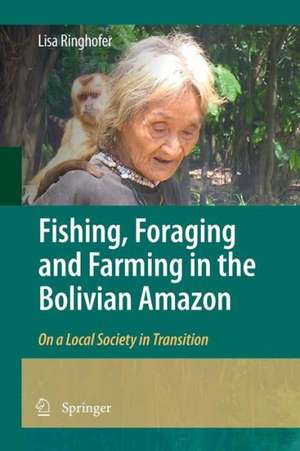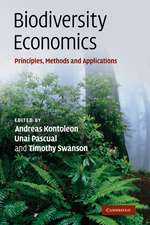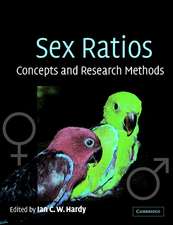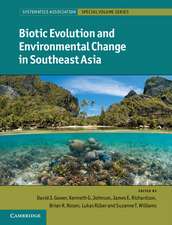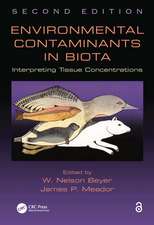Fishing, Foraging and Farming in the Bolivian Amazon: On a Local Society in Transition
Autor Lisa Ringhoferen Limba Engleză Paperback – 13 dec 2014
| Toate formatele și edițiile | Preț | Express |
|---|---|---|
| Paperback (1) | 943.25 lei 6-8 săpt. | |
| SPRINGER NETHERLANDS – 13 dec 2014 | 943.25 lei 6-8 săpt. | |
| Hardback (1) | 949.23 lei 6-8 săpt. | |
| SPRINGER NETHERLANDS – 16 dec 2009 | 949.23 lei 6-8 săpt. |
Preț: 943.25 lei
Preț vechi: 1150.31 lei
-18% Nou
Puncte Express: 1415
Preț estimativ în valută:
180.49€ • 188.44$ • 149.38£
180.49€ • 188.44$ • 149.38£
Carte tipărită la comandă
Livrare economică 04-18 aprilie
Preluare comenzi: 021 569.72.76
Specificații
ISBN-13: 9789400790872
ISBN-10: 9400790872
Pagini: 268
Ilustrații: XVIII, 249 p.
Dimensiuni: 155 x 235 x 14 mm
Greutate: 0.38 kg
Ediția:2010
Editura: SPRINGER NETHERLANDS
Colecția Springer
Locul publicării:Dordrecht, Netherlands
ISBN-10: 9400790872
Pagini: 268
Ilustrații: XVIII, 249 p.
Dimensiuni: 155 x 235 x 14 mm
Greutate: 0.38 kg
Ediția:2010
Editura: SPRINGER NETHERLANDS
Colecția Springer
Locul publicării:Dordrecht, Netherlands
Public țintă
ResearchCuprins
Introduction: Setting the Stage.- Sociometabolic Transitions and the MEFA Toolkit: Concepts and Methods.- Exploring an Indigenous World in the Bolivian Amazon: The Case of the Tsimane’.- Stocks, Flows and Land Use: The Metabolic Profile of Campo Bello.- Time, Work, and Other Functions.- Comparing Local Transitions Across The Developing World.- Local Visions for a Global Future.
Textul de pe ultima copertă
Empirical in character, this book analyses the society-nature interaction of the Tsimane’, a rural indigenous community in the Bolivian Amazon. Following a common methodological framework, the material and energy flow (MEFA) approach, it gives a detailed account of the biophysical exchange relations the community entertains with its natural environment: the socio-economic use of energy, materials, land and time. Equally so, the book provides a deeper insight into the local base of sociometabolic transition processes and their inherent dynamics of change. The local community described in this publication stands for the many thousands of rural systems in developing countries that, in light of an ever more globalising world, are currently steering a similar - but maybe differently-paced - development course. This book presents insightful methodological and conceptual advances in the field of sustainability science and provides a vital reader for students and researchers of human ecology, ecological anthropology, and environmental sociology. It equally contributes to improving professional development work methods.
Caracteristici
Detailed and insightful empirical case study of an indigenous community Detailed description of socioecological research methods, challenges and constraints in the field Provision of generic sustainability indicators as well as comparative data sets on metabolic profile and metabolic rates
